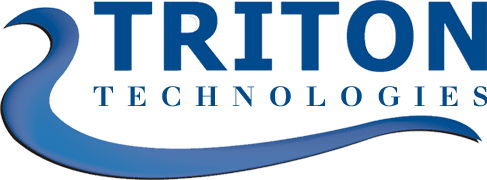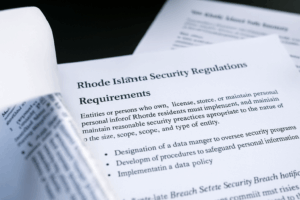As remote work transitions from an occasional arrangement to the standard mode of operation for many organizations, it introduces a host of new security challenges that require immediate and comprehensive attention. The shift to remote work, while offering significant flexibility and convenience, also necessitates a reevaluation of traditional security measures. Employees working from various locations, often using personal devices and unsecured home networks, create multiple points of vulnerability that can expose sensitive data to potential threats. This new landscape requires organizations to adapt their security strategies to address these emerging risks, ensuring that data protection measures are robust enough to handle the complexities of a distributed workforce.
Effectively understanding and mitigating remote working security risks is crucial for maintaining the integrity and confidentiality of your organization’s data. With the rise in remote work, it is essential to implement targeted security protocols that encompass everything from secure data transmission and strong authentication practices to comprehensive employee training and regular system updates. By proactively addressing these concerns, organizations can create a secure and resilient remote work environment that not only protects sensitive information but also supports continued operational efficiency. Investing in advanced security solutions and fostering a culture of cybersecurity awareness among remote employees are key steps in safeguarding your organization in this evolving work paradigm.
Understanding Remote Working Security Risks
Remote working security risks are the vulnerabilities and threats that arise when employees work outside the traditional office environment. Unlike in-office settings, remote work often involves connecting to company networks via less secure, personal devices and networks. This shift creates a variety of security issues with working remotely that organizations must address to prevent breaches and cyberattacks.
Key Security Issues with Working Remotely
Insecure Networks and Devices
One of the primary remote working cyber security risks is the use of unsecured home networks and personal devices. Employees working from home may connect to public Wi-Fi or use devices that lack proper security measures. These practices can expose sensitive company data to potential cyberattacks. Personal devices often lack the comprehensive security protections of corporate machines, making them more susceptible to malware and unauthorized access.
Lack of Proper Encryption
When working remotely, data transmitted over the internet can be intercepted if not properly encrypted. Without strong encryption protocols, sensitive information such as financial data, personal details, or confidential business communications can be exposed to hackers. Remote work environments often suffer from inadequate encryption, increasing the risk of data breaches.
Weak Authentication Protocols
Remote work often involves accessing company systems through virtual private networks (VPNs) or other remote access tools. Weak authentication measures, such as simple passwords or lack of multi-factor authentication (MFA), can compromise the security of these access points. Ensuring robust authentication protocols is essential to prevent unauthorized access to company resources.
Phishing and Social Engineering Attacks
Remote employees are often targeted by phishing scams and social engineering attacks. Cybercriminals exploit the remote work environment to trick employees into revealing sensitive information or downloading malicious software. These attacks can be particularly effective when employees are working in isolation and may not have immediate access to IT support.
Insufficient Security Awareness and Training
Security awareness is critical in a remote work setting. Employees who are not well-versed in recognizing security threats and best practices are more likely to fall victim to cyberattacks. Regular training on remote work security challenges and the latest cyber threats is essential for equipping employees with the knowledge to protect themselves and the organization.
Explore our Managed Service Offerings
Worcester’s Top Managed Service Provider
Mitigating Remote Work Security Challenges
Addressing the security issues with working remotely requires a multi-faceted approach. Organizations must implement comprehensive strategies to protect their remote workforce and maintain data security.
Implement Strong Encryption Practices
Ensure that all data transmitted between remote employees and the company network is encrypted. This includes using secure connections like HTTPS and employing advanced encryption standards for data at rest and in transit. Implementing end-to-end encryption for communications can further enhance data security.
Enforce Multi-Factor Authentication
Strengthen authentication protocols by requiring multi-factor authentication (MFA) for accessing company systems and data. MFA adds an extra layer of security by requiring users to provide additional verification factors, such as a code sent to their mobile device, in addition to their password.
Regularly Update and Patch Systems
Ensure that all remote devices and software are regularly updated with the latest security patches. Cybercriminals often exploit vulnerabilities in outdated software to gain unauthorized access. Regular updates help close these security gaps and protect against emerging threats.
Provide Comprehensive Security Training
Invest in ongoing security training for remote employees. Educate them about common cyber threats, such as phishing and social engineering, and provide guidance on safe online practices. Training should also include information on how to use security tools and report suspicious activities.
Utilize Secure Remote Access Tools
Use reputable remote access tools and VPNs that offer robust security features. These tools should be configured to provide secure connections and restrict unauthorized access. Regularly review and update access permissions to ensure that only authorized personnel can access sensitive data.
Implement Endpoint Protection
Deploy endpoint protection solutions on all remote devices used by employees. Endpoint protection software can detect and block malware, monitor for suspicious activities, and provide real-time security alerts. This is crucial for protecting devices that may not have the same level of security as corporate machines.
Establish Clear Security Policies
Develop and enforce clear security policies for remote work. These policies should outline acceptable use of company resources, data protection measures, and procedures for reporting security incidents. Ensure that employees are aware of and adhere to these policies to maintain a secure remote work environment.
Monitor and Respond to Security Incidents
Implement monitoring tools to continuously assess the security of remote connections and devices. Establish an incident response plan to quickly address and mitigate any security breaches or vulnerabilities. Regularly review and test your response plan to ensure its effectiveness.
Discover our IT Solutions for Your Industry
Worcester’s Top Managed Service Provider
How Triton Technologies Can Help
At Triton Technologies, we understand that navigating remote working security risks can be daunting. Our suite of services is designed to address these challenges and provide robust protection for your remote work environment. Here’s how our offerings can enhance your remote work security:
Managed Services
Our Managed Services provide comprehensive IT support and oversight, ensuring that your remote work infrastructure is secure and well-maintained. We handle everything from system monitoring and threat detection to regular updates and patch management. By outsourcing your IT management to us, you can focus on your core business activities while we ensure your systems are protected against evolving cyber threats.
Compliance Management
Navigating compliance requirements can be complex, especially in a remote work setting. Triton Technologies offers expert Compliance Management services to help you adhere to industry regulations and standards. We assist with implementing necessary security measures, conducting audits, and ensuring that your remote work practices meet regulatory requirements. Our goal is to help you avoid compliance-related penalties and maintain a secure and compliant remote work environment.
Industry-Specific IT Solutions
Different industries face unique security challenges. Triton Technologies IT Solutions for different industries. Whether you’re in government, healthcare, hospitality, or any other sector, our solutions are designed to protect sensitive data, ensure secure remote access, and meet industry-specific compliance requirements. We work closely with you to develop and implement IT strategies that align with your business goals and security needs.
Remote working security risks are an inevitable part of the modern work landscape, but they can be managed with the right strategies and precautions. By understanding the security issues with working remotely and implementing comprehensive measures, organizations can mitigate remote work security challenges and protect their valuable data. At Triton Technologies, we are committed to helping you navigate these challenges with our Managed Services, Compliance Management, and Industry-Specific IT Solutions. As remote work continues to evolve, staying informed about emerging threats and adapting security practices will be essential for maintaining a secure and productive remote work environment. Reach out to us today to learn how we can support your remote work security needs.



